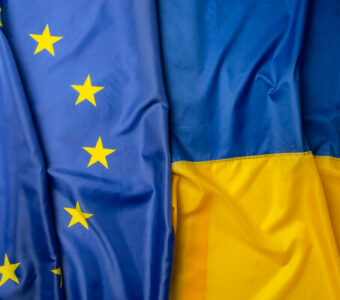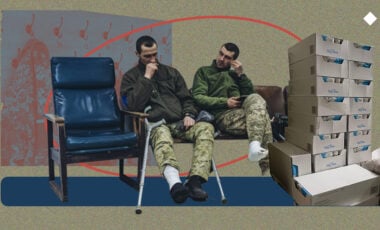Three-fourths of Ukrainians hold President Zelensky accountable for government and military corruption – survey

77.6% of Ukrainian citizens believe President Volodymyr Zelensky is also directly responsible for corruption in the government and military administrations.
The results of a sociological study by the Democratic Initiatives Foundation and the Kyiv International Institute of Sociology, with the support of the Prague Center for Civil Society, evidence this.
As Petro Burkovsky, director of Democratic Initiatives, noted, the argument that "the authorities can not in time everywhere" does not work after 16 months of war. In addition, this excuse will also "no longer serve as an indulgence for abuse, indifference, and incompetence."
"Delaying solutions to problems that undermine people's faith in victory will also hit the president himself. The survey showed that according to 77.6% of citizens, "the president bears direct responsibility for corruption in the government and military administrations," he emphasized.
The sociologist concluded that citizens expect:
- on the determination of the president to remove from power officials who do not fulfill their duties,
- listen to and promote performers who honestly point out problems and competently offer their solutions.
Burkovsky assumes that most citizens can support the idea of "transferring violators of military commissars to the front lines." Still, it is unlikely that such a decision will be supported in combat units.
After all, "can we trust the weapons and lives of soldiers to people who cynically traded certificates to evade military service?"
In addition, according to the survey:
- 72.9% of Ukrainians support the release of wounded soldiers from the ranks of the Armed Forces with the payment of all appropriate compensation for treatment and rehabilitation,
- 46.3% — voluntary transfer to positions in military commissariats instead of current employees.
The survey was conducted in July 2023. For this, 2,011 adult respondents living in 135 settlements in Ukraine were interviewed. The survey was conducted by the method of personal interviews using a tablet.
Due to security issues, the Donetsk, Luhansk, and Kherson regions were excluded from the sample. Under normal circumstances, the statistical error does not exceed 3.3%.


















































